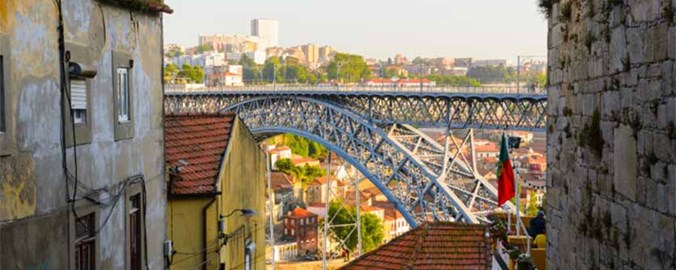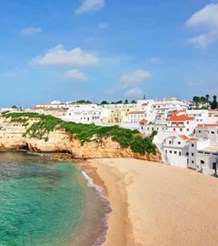
Portuguese Real Estate Boosted by Foreigner-Friendly Investment Climate
A combination of improved fundamentals and government measures to relax tax and visa rules applying to foreign property investors has kick-started sustainable recovery in Portugal's property market.
Recovering property prices, low mortgage rates and a more investor-friendly tax climate are helping to make Portugal one of Europe's most attractive overseas property destinations this year, according to the Algarve office of PortugalBuyingGuide.com.
Elaine Ferguson, head of the resource centre at OverseasGuidesCompany.com said: "Our PortugalBuyingGuide.com office in Vilamoura has noted an upturn in demand in 2015, partly fuelled by the weaker euro but also by the favourable mortgage deals available in Portugal now. Meanwhile there is evidence of limited supply of new-build in some areas of the Algarve, which is also putting upward pressure on the market. In terms of mortgages, since Portugal's exit from the bailout last year, there has been more confidence in the home finance market, with Portuguese banks becoming more competitive, typically offering 80% LTV (loan-to-value) and rates of below 3.5%, helped by the incredibly low Euribor rate".
Improving fundamentals and bargain prices continue to attract foreign property investors in Portugal
In the August publication of the RICS' Portuguese Housing Market Survey, the dynamic of solid demand and falling supply is expected to support house price recovery in Portugal. The report highlights the imbalance between rising buyer enquiries and falling new sales listings continue to underpin a steady increase in house prices. Likewise, in the lettings market, solid tenant demand growth has pushed rents up marginally although a relatively flat trend is still projected by the RICS in the near term.
The report goes on to indicate that sales volumes are expected to pick up at a smart pace in coming months, with the backdrop of solid demand from foreign property investors underpinning price growth.
With demand outstripping supply in Portugal's housing market, property prices have continued to recover across all regions. What's more, the latest data suggest the rate of house price inflation accelerated across each market during August. The survey's respondents – all real estate professionals operating in Portugal – remain confident that house prices will rise further at both the three and twelve month horizons. "Indeed, over the year ahead contributors forecast national prices will increase by around 3% and by (on average) roughly 5% per annum over the next five years," the report states.
Portugal's government has been actively engaged in stimulating foreign investment in its property market by improving the investment climate through improved taxation and schemes like the Non-Habitual Residents (NHR) programme which guarantees considerable tax breaks on pension and income in the first ten years of residency.
Comparatively low taxation to other EU nations attractive to non-EU buyers in Portugal
Other attractive incentives for overseas property investors in Portugal is that there is no wealth tax at all and negligible inheritance tax compared with other EU countries, adding to its appeal to non-EU property buyers.
Portugal's Golden Visa scheme has continued to attract foreign buyers in its real estate market, predominantly from China, Brazil and Russia. Many purchase properties in Lisbon where relaxed rental controls from 2012 have triggered the rehabilitation of many of the city's older, imposing buildings, many of which are being converted into luxury apartments.
Tourism has been booming in Portugal in 2015 with Porto, the country's second city seeing more visitors this year after EasyJet launched direct flights from Bristol, Luton and Manchester in April. Porto has been rebranded to convey a more 'youthful, cosmopolitan' feel that is attracting holidaymakers like a magnet to the historic city, set on the banks of the Douro in the north of Portugal.
Improved tourism infrastructure and increasing visitor numbers has elevated interest among foreign property investors in Portugal through 2015. However, in the recovery of Portugal's housing market, there is clearly a shift in interest from investing in the country's traditional hotspots in The Algarve more towards buying for the domestic and holiday rental markets in Lisbon and Porto.
With supply still gathering pace to meet the huge demand for Portuguese real estate, there are still some bargains to be found although opportunities will become increasingly scarce unless there's a pick-up in construction in the near term.






